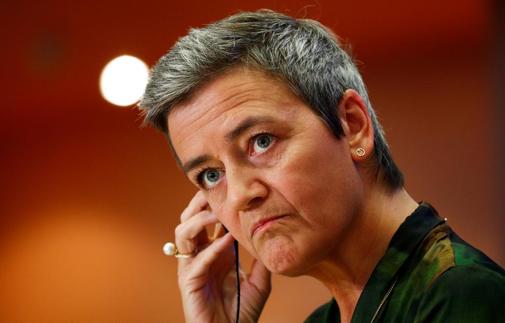- Competition Margrethe Vestager, the new scourge of technology
The European Commission on Monday authorized the use of 3.2 billion euros of state subsidies for a pan-European research and development project in the field of batteries. The joint proposal, launched by Belgium, Finland, France, Germany, Italy, Poland and Sweden , is an important project of common European interest (IPCEI), and has had to pass the examination of the institutions to see if it was illegal state aid.
The seven governments will provide in the coming years a financing of approximately 3,200 million euros, a step that, according to their calculations, would unlock an additional 5,000 million euros of private investments. The objective is to complete the project in 2031. "The production of batteries in Europe is of strategic interest for our economy and our society due to its potential both in terms of clean mobility and energy, as well as in job creation, sustainability and competitiveness These important projects of common European interest pave the way for public authorities and industries in several member states to meet and design ambitious innovation projects with indirect positive effects in all industrial sectors and regions. This authorized public assistance will ensure that project can go ahead without unduly distorting competition, "said Margrethe Vestager, vice president of the Commission and responsible for Competition issues, in a statement.
In recent months, Vestager had repeatedly clashed with France and Germany, the two countries that most strongly advocated a reform of the Competition rules . Paris and Berlin want a profound change that has in mind not so much internal issues, but external challenges. The Commission said no to a merger such as that of Siemens and Alstom, considering that it would harm the Community market and that Chinese rivals did not pose a threat in a very specific market in the railway sector. But when thinking about a strategic sector such as batteries, in the medium and long term, technicians have considered that there was no illegal state aid or danger to rivals.
In Brussels, the idea that more 'Airbuses' are needed, large pan-European projects that are capable of competing worldwide, has long since been established. This does not have much less an ambitious horizon, but what matters most is the strategic value. Next March, Von der Leyen will publish his initiative for the industrial future of the continent, but some of the basic lines about his worldview are clear. "Our strategy to improve innovation under the European Battery Alliance is generating strong industrial partnerships. Thanks to the intensive efforts of seven member states, the industrial sector and the Commission are emerging the first major European pan-European battery ecosystem. We have found the correct recipe for our 21st century industrial policy: strong cooperation between industrial actors, concerted action to accelerate innovation from the laboratory directly to the market; joint financial instruments from both the public and private sectors; and an appropriate regulatory framework for the future that underpins a stronger European economy based on knowledge, "said Maros Sefcovic, also community vice president.
The idea of batteries like in the new Commission for different reasons. The three priorities of Urusula von der Leyen are climate change, digitalization and making a stronger Europe in the world , and in its own way this idea combines all three. The thesis in his team is that "the transition to climate neutrality, even through clean mobility and low emissions, will provide significant opportunities for economic growth, job creation and technological development" and specifically, experts The house assumes that the demand for batteries will grow very rapidly in the coming years. "Future research, development and innovation policies will have a key role in enabling Europe and its member states to take full advantage of this transition," explains the statement presented today.
The Commission launched at the end of 2017 the initiative known as the European Battery Alliance, with the Member States that were interested and a wide range of industrial actors, adopted a specific Strategic Action Plan for batteries in May 2018, supporting the development of innovative and sustainable technologies for lithium-ion batteries that last longer, have shorter charging times, are safer and greener.
17 direct participants will participate , mostly industrial actors, including several SMEs. He was formally notified to the Commission for approval in October 2019, and the technicians have taken special hurry.
To elucidate whether or not those 3,200 million were illegal State aid, the Commission evaluated the project according to the Communication on IPCEI, designed for situations of "market failure". To pass the exam, a project must "contribute to the strategic objectives of the EU; involve several Member States; bring private financing; generate positive indirect effects across the EU and be very ambitious in terms of research and innovation". And according to the technicians, this seven-way band complies with it and, in addition, individual aid to different companies "does not unduly distort competition"
According to the criteria of The Trust Project
Know more- Europe
- Germany
- France
- Paris
- Poland
- Sweden
- Italy
- Finland
- European Comission
- Belgium
- Airbus
Jihadism Europe, faced with the challenge of repatriating Islamic State militiamen detained by Turkey
Data No EU country has a coalition government as the one agreed between Pedro Sánchez and Pablo Iglesias
Drug trafficking The 'travel agency' of cannabis gardener slaves in Spain

